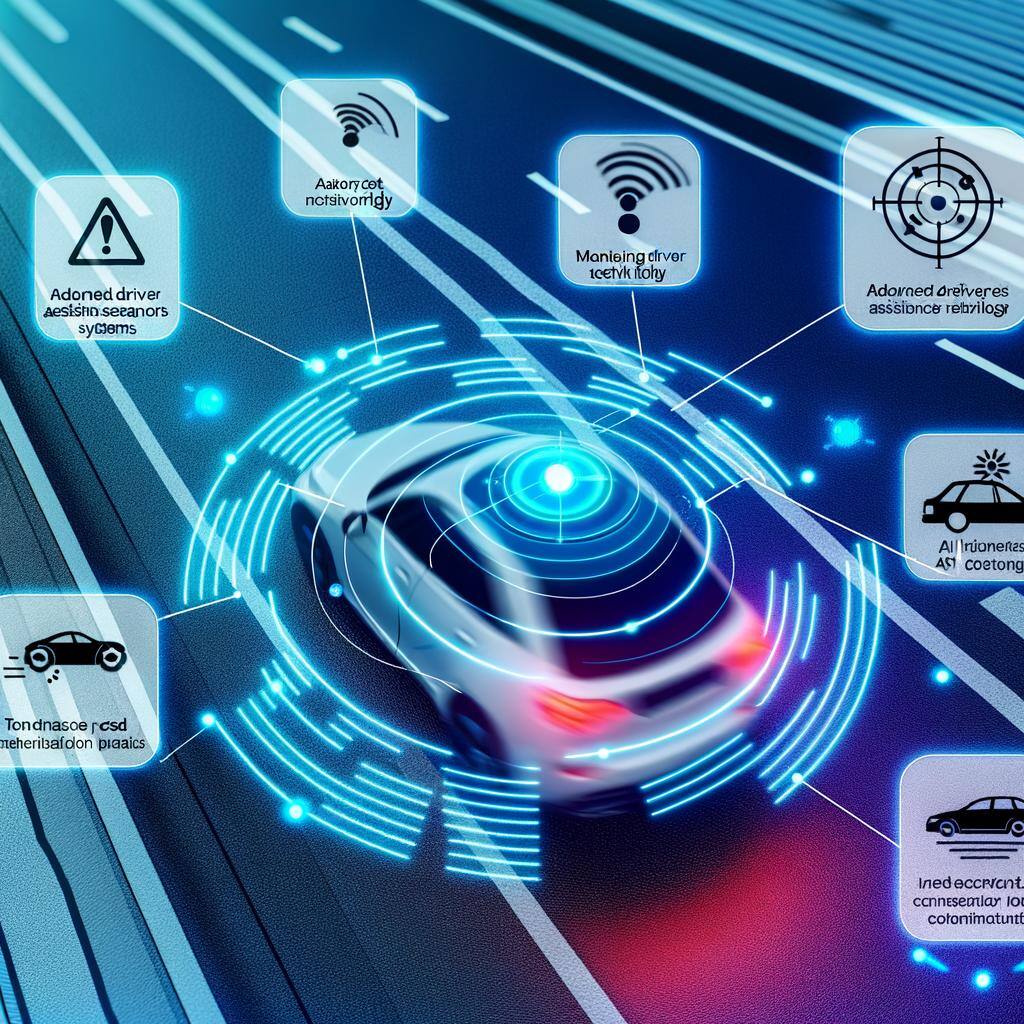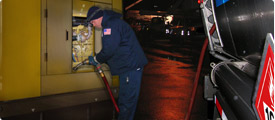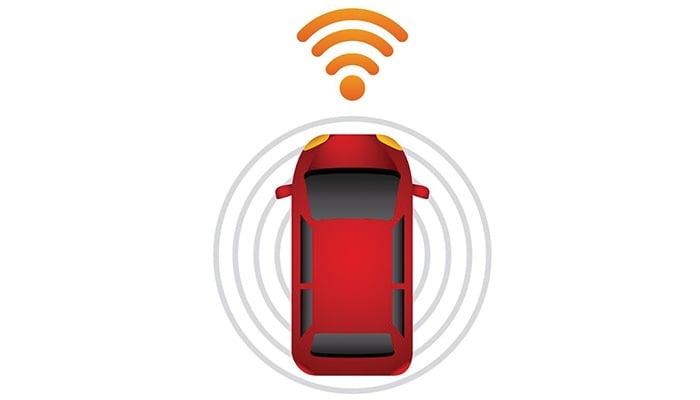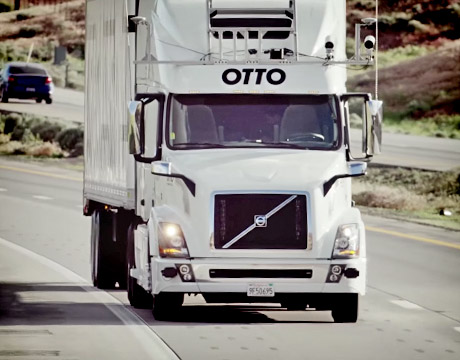AI is revolutionizing both fleet management and office operations by making them more automated and efficient. These days, most of us are familiar with the cutting-edge safety features in new cars. Advanced driver assistance systems leverage AI algorithms to detect potential dangers, provide real-time alerts to drivers, and even take corrective actions to prevent accidents. This technology significantly enhances the safety of both drivers and passengers by reducing the risk of accidents caused by human error.
ESG & Industry Updates
Topics: Safety
Winter 2017/2018 was a rough one for New England, particularly in terms of power outages. Generators have become an increasingly prevalent and important part of companies' Emergency Response Plans and as a fuel company, its important to look at how you handle the sometimes unpredictable surges in demand that covering your generator customers can cause.
Topics: Safety, Emergency Generator Program, Emergency Fuel
The Struggle is Real for Regulating Autonomous Vehicle Safety
Posted by Ed Burke on Mar 23, 2017 3:00:00 PM
Self-Driving vehicles (or AV's - autonomous vehicles) are the undisputed next frontier in consumer transport technology. Automakers, it appears, are anxious for Federal Guidelines to be put in place in order to tailor their roll outs, and be assured that they are in compliance with safety expectations, as well as in order to circumvent the mess of State's adopting their own patchwork regulations in leiu of uniform federal regulations.
Topics: Safety, Technology, AVs
This past October, a Volvo 18 wheeler delivered 2,000 cases of Budweiser in Colorado - with no driver at the wheel!
Topics: Safety, Oil & Energy Magazine, AVs
We run a big fleet of trucks, including tankers, straightjobs, box trucks and a fleet of company vehicles driven by our sales team - so we have put a LOT of thought into safety program effectiveness.
Topics: Safety, Safe Driving Policy, Oil & Energy Magazine
Hedging Risks Outside of the Finance Department Pays Big Dividends
Posted by Ed Burke on Jun 17, 2013 10:20:00 AM
We're all familiar to some extent with the payoff that can come with hedging financial risks in the industry. However, there are a lot of other risks out there for your company, so the question becomes 'how are you hedging that?'
Topics: Safety, Oil & Energy Magazine, Workplace Risk
Safety and Regulatory Compliance - a Culture, not a Program
Posted by Ed Burke on Jun 20, 2012 3:59:00 PM
Below you can link to an article I published the in May 2012 issue of Oil & Energy Magazine on the importance of Safety in the industry. In my mind, it is critical to prioritize safety and compliance in order to foster not just a safety program, but a Safety Culture. In the article, I run through why I think Safety is so critical, a little about how we created and fostered the strong Safety Culture present at Dennis K Burke, and how our company and employees have benefitted.
Topics: Safety, Oil & Energy Magazine
Subscribe to Email Updates
Recent Posts
Posts by Topic
- Carbon Emissions (42)
- Climate Change (33)
- renewable energy (32)
- Oil & Energy Magazine (27)
- EPA (24)
- Massachusetts (22)
- Biden Administration (18)
- decarbonization (15)
- Biodiesel (12)
- natural gas (12)
- EPA Mandate (11)
- RFS (11)
- Solar (11)
- Biofuels (10)
- Keystone XL (10)
- methane (10)
- Clean Energy (9)
- offshore wind (9)
- Energy Independence (8)
- Energy Infrastructure (8)
- Safety (8)
- Biodiesel Tax Credit (7)
- Emissions (7)
- Ethanol (7)
- Trump Administration (7)
- ev (7)
- Cellulosic Ethanol (6)
- EV Charger (6)
- Inflation Reduction Act (6)
- RINs (6)
- environmental justice (6)
- Fracking (5)
- Technology (5)
- US Crude Exports (5)
- Utility Rates (5)
- electric vehicles (5)
- maine (5)
- tesla (5)
- ACT (4)
- Mass DOER (4)
- TransCanada (4)
- battery (4)
- fuel management (4)
- massachusetts biodiesel mandate (4)
- obama (4)
- paris accord (4)
- remote tank monitoring (4)
- CARB (3)
- CRUDE (3)
- Carbon Capture (3)
- Clean Fuel Production Credit (3)
- E85 (3)
- Emergency Fuel (3)
- Massachusetts Clean Cities (3)
- Waste Feedstock Biodiesel (3)
- china (3)
- clean power plan (3)
- electricity rates (3)
- net-zero (3)
- renewable diesel (3)
- solid state battery (3)
- AI (2)
- AVs (2)
- Bioheat (2)
- Commodities (2)
- Congress (2)
- Customer Service (2)
- DOT (2)
- EIA (2)
- Emergency Generator Program (2)
- HFCs (2)
- Hurricane Sandy (2)
- IMO 2020 (2)
- MIT (2)
- Marinas (2)
- New York (2)
- Refinery Closures (2)
- Safe Driving Policy (2)
- TCI (2)
- US Energy Boom (2)
- ZEV (2)
- autonomous vehicles (2)
- clean air act (2)
- clean heat standard (2)
- coal (2)
- driver shortage (2)
- emergency response (2)
- environment (2)
- ferc (2)
- geothermal (2)
- hydro-electric (2)
- hydrogen (2)
- national grid (2)
- net metering (2)
- power plant emissions (2)
- power plants (2)
- railcar regulations (2)
- tariff (2)
- vineyard wind (2)
- API (1)
- Air conditioning (1)
- Baiji Refinery (1)
- Blend Wall (1)
- Brent Crude (1)
- Brent vs WTI (1)
- CFCs (1)
- Cell Phone Policy (1)
- Clean Water Act (1)
- DEF (1)
- Election Results (1)
- Electrical Grid (1)
- Energy Efficiency (1)
- Environmental Impact Study (1)
- Environmentally Friendly Products (1)
- Ethanol Tax Credit (1)
- FEMA (1)
- Fiscal Cliff (1)
- Gas Tax (1)
- Gasoline Supply Crunch (1)
- HDVC (1)
- Hazmat (1)
- Heat Tax (1)
- Highway Trust Fund (1)
- Holyoke (1)
- Hybrid (1)
- ISIS (1)
- Iraq (1)
- Kigali Amendment (1)
- MOC (1)
- Market analysis (1)
- Mayflower (1)
- Montreal Protocol (1)
- NORA (1)
- Natural Gas Pipeline Explosion (1)
- New Jersey (1)
- OBB (1)
- Oil Barrel Tax (1)
- PFC (1)
- Pegasus Pipeline (1)
- Propane Autogas (1)
- Stimulus (1)
- Syria (1)
- Tank Truck Safety Training (1)
- Tax Increases (1)
- Tier 3 Gasoline Standard (1)
- Times Square (1)
- VEEP (1)
- Workplace Risk (1)
- agriculture (1)
- algonquin pipeline (1)
- alternative energy (1)
- altwheels (1)
- astm (1)
- bionic leaf (1)
- bitcoin (1)
- boston (1)
- covid-19 (1)
- energy storage (1)
- eversource (1)
- export ban (1)
- fixed pricing (1)
- fuel (1)
- fuel efficiency (1)
- fuel marketers news (1)
- gas leaks (1)
- heating oil (1)
- hurricane harvey (1)
- inflation (1)
- irving oil (1)
- marketing (1)
- nuclear (1)
- online fuel buying (1)
- ozone (1)
- photovoltaic (1)
- pilot program (1)
- pipeline (1)
- propane (1)
- renewable natural gas (1)
- rggi (1)
- russia (1)
- sanctions (1)
- senate (1)
- shale (1)
- social media (1)
- social media for business (1)
- space (1)
- tablets (1)
- tennessee pipeline (1)
- ukraine, (1)
- value added services (1)





